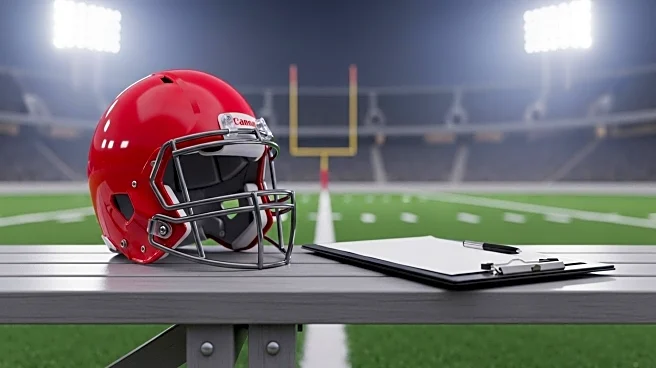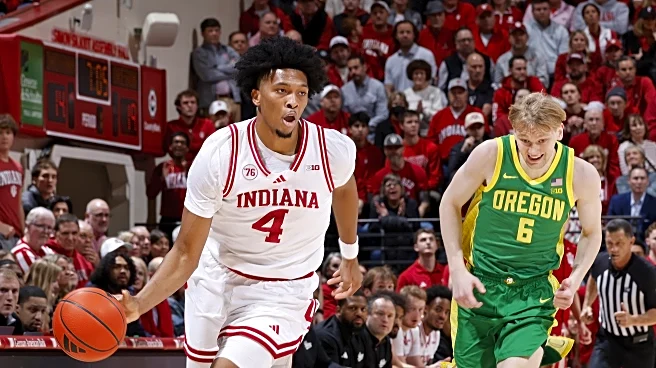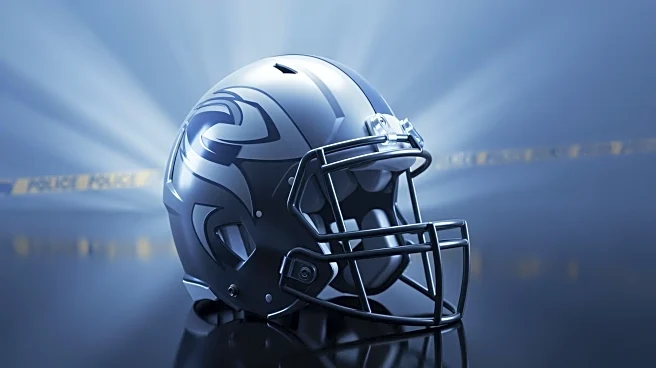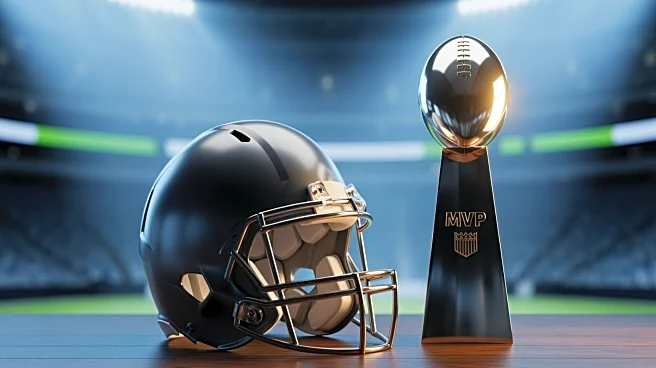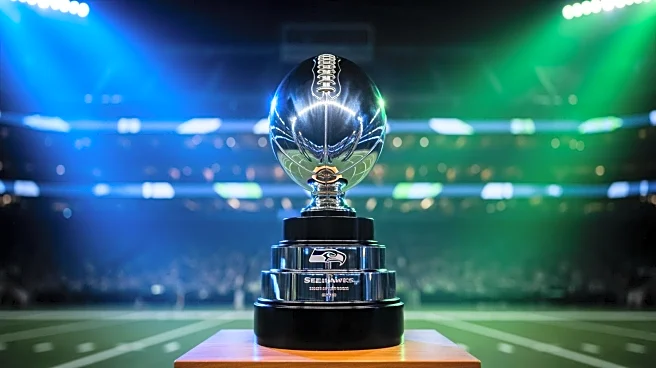What's Happening?
Kansas City Chiefs tight end Travis Kelce recently made headlines following a sideline confrontation with head coach Andy Reid during the team's 22-9 victory over the New York Giants. The incident occurred after a missed field goal, when Kelce, visibly upset, chest-bumped Reid and engaged in a brief shouting match. Despite the heated exchange, Reid downplayed the severity of the incident, expressing his appreciation for Kelce's passion for the game. Kelce later clarified his actions, emphasizing his respect for Reid and acknowledging the coach's role in challenging players to perform at their best. This is not the first time Kelce and Reid have had such interactions, as a similar incident occurred during Super Bowl LVIII against the San Francisco 49ers.
Why It's Important?
The confrontation between Travis Kelce and Andy Reid underscores the intense dynamics within professional sports teams, where passion and competitive drive can sometimes lead to heated exchanges. Such incidents can impact team morale and public perception, but they also highlight the importance of strong leadership and communication. Reid's ability to manage Kelce's fiery temperament and channel it into positive performance is crucial for maintaining team cohesion. This event also reflects the broader challenges coaches face in balancing discipline with encouragement, which can significantly affect a team's success and reputation.
What's Next?
While the incident has been resolved amicably, it may prompt further discussions within the team about emotional management and communication strategies during high-pressure situations. The Chiefs will likely continue to focus on maintaining their winning streak, with Reid and Kelce working together to ensure that passion translates into positive outcomes on the field. Fans and analysts will be watching closely to see how this dynamic evolves and whether it impacts the team's performance in upcoming games.
Beyond the Headlines
The confrontation between Kelce and Reid also raises questions about the role of emotional intelligence in sports. As athletes are often under immense pressure, understanding and managing emotions can be as crucial as physical training. This incident may encourage other teams to invest in psychological support and training to help players navigate the emotional challenges of professional sports.
